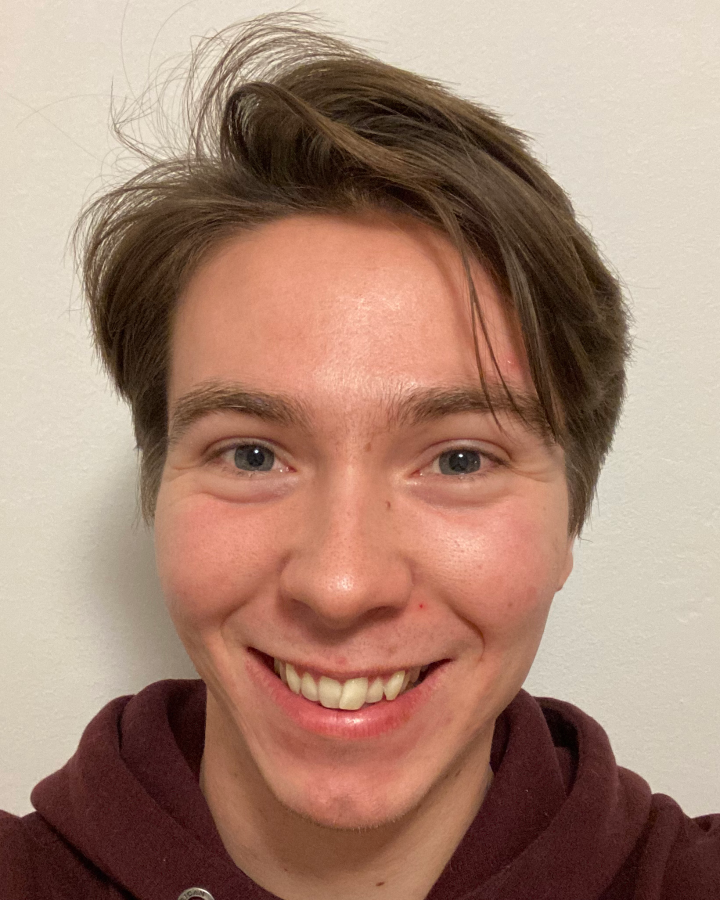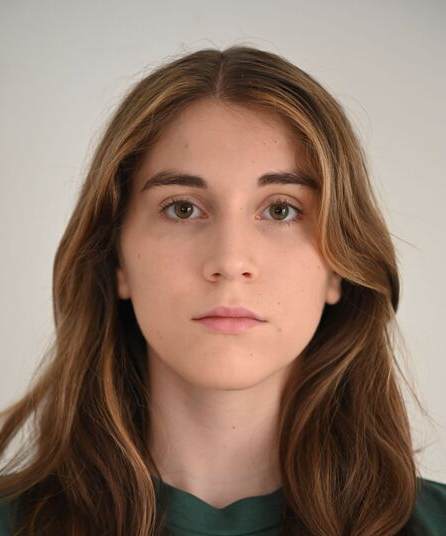Henderik Proper
Univ.Prof. PhD
Henderik Proper
- Email: henderik.proper@tuwien.ac.at
- Phone: +43-1-58801-194303
- Office: HC0215 (1040 Wien, Favoritenstrasse 9)
- About:
- Orcid: 0000-0002-7318-2496
- Keywords:
- Roles: Head of Research Unit, Full Professor
Publications
Towards an Ontology-Driven Approach for Digital Twin Enabled Governed IT Management
 Geert Poels
Geert Poels Ilaria Tiddi
Ilaria Tiddi Maria Maleshkova
Maria Maleshkova T. Pellegrini
T. Pellegrini Victor de Boer
Victor de BoerKeywords:
Astract: The Digital Transformation of our society requires IT infrastructures to be more agile, more adaptive, and more connected than ever. At the same time, the owners of such infrastructures are confronted with an increase in regulatory pressure (e.g., the GDPR). These developments put a lot of stress on IT management and governance. To enable IT management and governance to better deal with these challenges, we propose to digitally transform IT governance and management itself by using a Digital Twin based approach. In line with this, we aim to create on ontology-driven Digital Twin for Governed IT Management (DT4GITM) framework. The goal of this framework is to act as a reference architecture for a Digital Twin based infrastructure that connects three interrelated systems: the IT governance processes, the governed IT management processes, and the managed organizational IT assets. The core of the framework involves a generic Governed IT Management (GITM) Domain Ontology, which is planned to be operationalized by a Knowledge Graph based approach that realizes an integrated view on the heterogenous data streams originating from the IT governance and management processes, and the managed IT assets. In this paper, we start by outlining the planned DT4GITM framework and the pivotal role of the GITM Domain Ontology within this. We then elaborate our incremental, and scenario- and case-driven strategy towards the development of the framework as a whole, and the GITM Domain Ontology in particular. This is followed by the elaboration of a specific DT4GITM scenario which serves as a first proof of principle.
Proper, H. A., Bork, D., & Poels, G. (2021). Towards an Ontology-Driven Approach for Digital Twin Enabled Governed IT Management. In I. Tiddi, M. Maleshkova, T. Pellegrini, & V. de Boer (Eds.), Joint Proceedings of the Semantics co-located events: Poster&Demo track and Workshop on Ontology-Driven Conceptual Modelling of Digital Twins (SemanticsP&Ds 2021), Amsterdam and Online, September 6-9, 2021 (pp. 1–14). CEUR-WS.org. http://hdl.handle.net/20.500.12708/58493
20th IEEE International Conference on Business Informatics
 Stefan Strecker
Stefan Strecker Christophe Feltus
Christophe Feltus Guédria Wided
Guédria Wided Iván Razo-Zapata
Iván Razo-Zapata Manel Brichni
Manel Brichni David Rozier
David Rozier Mikhail M. Komarov
Mikhail M. Komarov Svetlana V. Maltseva
Svetlana V. Maltseva Sérgio Guerreiro
Sérgio Guerreiro
Proper, H. A., Strecker, S., Huemer, C., Feltus, C., Wided, G., Razo-Zapata, I., Brichni, M., Rozier, D., Komarov, M. M., Maltseva, S. V., & Guerreiro, S. (Eds.). (2018). 20th IEEE International Conference on Business Informatics. IEEE Computer Society. https://doi.org/10.1109/cbi.2018.00001
Optimized Container-Based Process Execution in the Cloud
 Philipp Waibel
Philipp Waibel Anton Yeshchenko
Anton Yeshchenko Stefan Schulte
Stefan Schulte Jan Mendling
Jan Mendling Hervé Panetto
Hervé Panetto Christophe Debruyne
Christophe Debruyne Claudio Agostino Ardagna
Claudio Agostino Ardagna Dumitru Roman
Dumitru Roman Robert Meersman
Robert MeersmanKeywords:
Astract: A key challenge for elastic business processes is the resource-efficient scheduling of cloud resources in such a way that Quality-of-Service levels are met. So far, this has been difficult, since existing approaches use a coarse-granular resource allocation based on virtual machines.
In this paper, we present a technique that provides fine-granular resource scheduling for elastic processes based on containers. In order to address the increased complexity of the respective scheduling problem, we develop a novel technique called GeCo based on genetic algorithms. Our evaluation demonstrates that in comparison to a baseline that follows an ad hoc approach a cost saving between 32.90% and 47.45% is achieved by GeCo while considering a high service level.
Waibel, P., Yeshchenko, A., Schulte, S., & Mendling, J. (2018). Optimized Container-Based Process Execution in the Cloud. In H. Panetto, C. Debruyne, H. A. Proper, C. A. Ardagna, D. Roman, & R. Meersman (Eds.), On the Move to Meaningful Internet Systems. OTM 2018 Conferences Confederated International Conferences: CoopIS, C&TC, and ODBASE 2018, Valletta, Malta, October 22-26, 2018, Proceedings, Part II (pp. 3–21). Springer, Cham. https://doi.org/10.1007/978-3-030-02671-4_1
Interoperability and Integration in Future Production Systems
 Manuel Wimmer
Manuel Wimmer Siegfried Reich
Siegfried Reich Wernher Behrendt
Wernher Behrendt Stefan Thalmann
Stefan Thalmann Georg Weichhart
Georg Weichhart Alois Zoitl
Alois ZoitlKeywords:
Astract: Research in areas of Internet of Things (IoT), Industry 4.0 (I4.0), Cyber Physical Systems (CPS), consider system-of-systems composed of hardware and software systems that seamless work together. Interoperability ranges from compatibility (systems do not disturb other systems, but no interaction between systems) to integration (systems that share a common model/worldview). Between these extremes a continuum of interoperability exists.
In any case, interoperability is a model-driven approach - in contrast to data-driven or machine-learning approaches, for example. In general, models contain modules, connections, and behavior descriptions of different types.
Integration and interoperability may not only be seen as (goal) states but also as processes. Changes in one system might trigger adaptation in other systems. However, in loose integration and interoperability settings there is more support for the evolution of models.
Huemer, C., Kappel, G., Wimmer, M., Proper, H. A., Reich, S., Behrendt, W., Thalmann, S., Weichhart, G., & Zoitl, A. (2018). Interoperability and Integration in Future Production Systems. In 2018 IEEE 20th Conference on Business Informatics (CBI). IEEE Computer Society, Vienna, Austria. IEEE Computer Society. https://doi.org/10.1109/cbi.2018.10067
Teaching
Project in Computer Science 1
Semester: 2025S; Nr: 194.145; Type: PR; Hours: 4.0; Language: if required in English; View on TISSProject in Computer Science 2
Semester: 2025S; Nr: 194.146; Type: PR; Hours: 4.0; Language: if required in English; View on TISSResearch Seminar
Semester: 2024W; Nr: 188.446; Type: SE; Hours: 2.0; Language: if required in English; View on TISSLiterature Seminar for PhD Students
Semester: 2024W; Nr: 188.512; Type: SE; Hours: 2.0; Language: German; View on TISSBachelor Thesis for Informatics and Business Informatics
Semester: 2024W; Nr: 188.926; Type: PR; Hours: 5.0; Language: if required in English; View on TISSInformation Systems Engineering
Semester: 2024W; Nr: 194.143; Type: VU; Hours: 4.0; Language: English; View on TISSProject in Computer Science 1
Semester: 2024W; Nr: 194.145; Type: PR; Hours: 4.0; Language: if required in English; View on TISSEnterprise & Process Engineering
Semester: 2024W; Nr: 194.152; Type: VU; Hours: 4.0; Language: English; View on TISSOntology-Driven Conceptual Modeling
Semester: 2024W; Nr: 199.021; Type: VU; Hours: 2.0; Language: English; View on TISSTeam
Business Informatics Group, TU Wien
Professors
Christian Huemer
Ao.Univ.Prof. Mag.rer.soc.oec.Dr.rer.soc.oec.
Dominik Bork
Associate Prof. Dipl.-Wirtsch.Inf.Univ.Dr.rer.pol.
Gerti Kappel
O.Univ.Prof.in Dipl.-Ing.inMag.a Dr.in techn.
Henderik Proper
Univ.Prof. PhDResearchers
Aleksandar Gavric
Univ.Ass. MEng. B.Eng.
Galina Paskaleva
Projektass.in Dipl.-Ing.inDipl.-Ing.in BSc

Marianne Schnellmann
Univ.Ass.in BSc MScMarion Murzek
Senior Lecturer Mag.a rer.soc.oec.Dr.in rer.soc.oec.
Marion Scholz
Senior Lecturer Dipl.-Ing.inMag.a rer.soc.oec.
Miki Zehetner
Univ.Ass. DI Bakk.rer.soc.oec. MScSyed Juned Ali
Univ.Ass. BSc MScStudent-Staff

Florian Fankhauser
Projektass. Dipl.-Ing.Julia Smejkal
BSc






